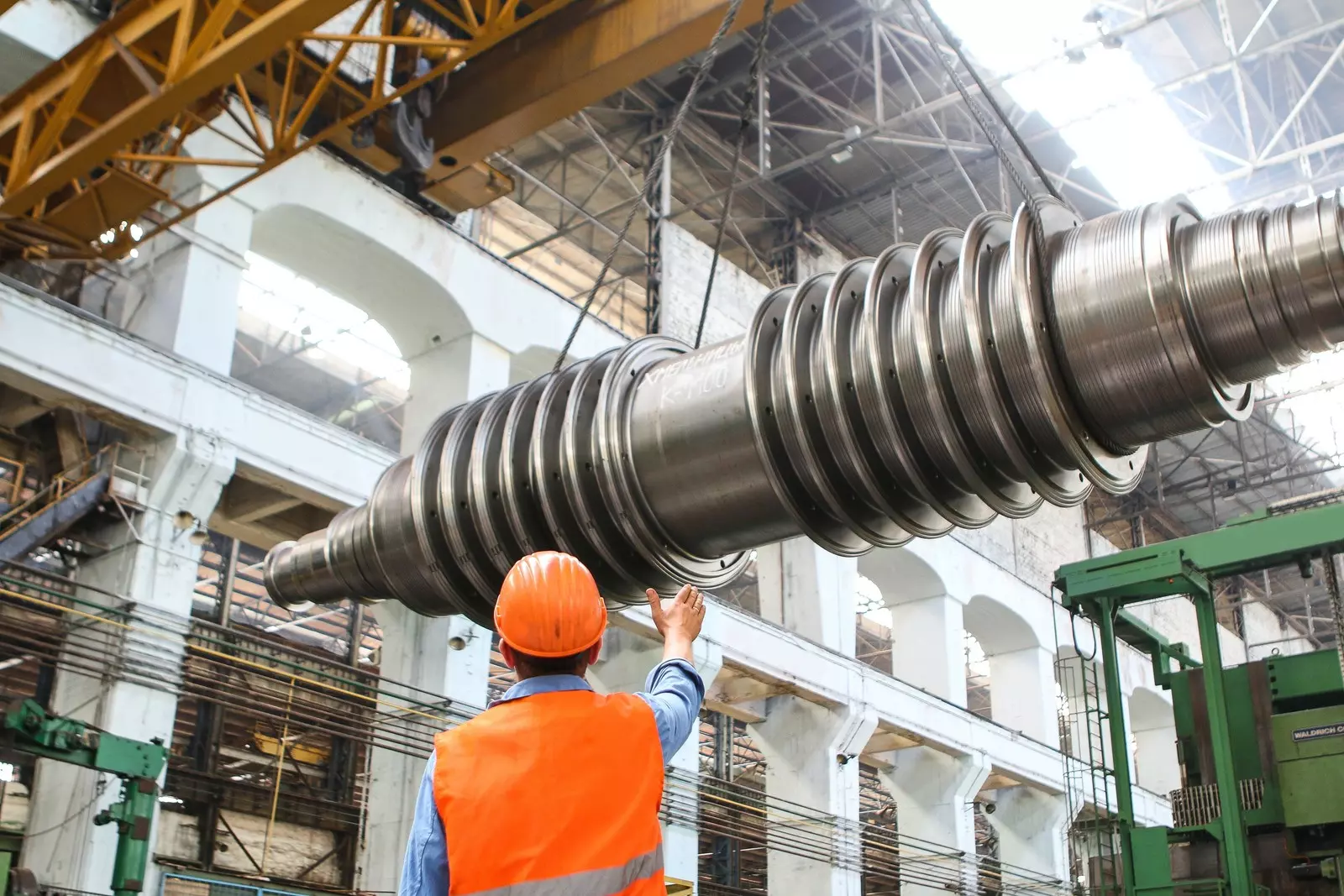-
The manufacturing sector is facing many challenges, including the need for sustainability, a skills shortage and geopolitical instability.
-
Artificial intelligence (AI) can help by improving productivity and efficiency, increasing flexibility and augmenting the workforce.
-
A new global initiative aims to raise awareness of these opportunities.
Copyright: weforum.org – “4 ways artificial intelligence could transform manufacturing”

The world of industrial operations is changing, and manufacturing companies are under considerable pressure. Challenges include rising economic pressure, the sustainability imperative, volatile resource prices and supply chain disruptions as well as increasing capability challenges and talent shortage.
A continuous improvement in production efficiency has always been considered one of the key prerequisites to ensure the competitiveness of globally operating companies. This requirement has not changed. However, the traditional levers for increasing productivity are now less effective. New challenges have emerged, including the COVID pandemic and increased geopolitical uncertainty. These have led to a rapid increase in the importance of resilience and flexibility of entire supply chains. Many industrial companies are also facing a skills shortage; this will affect 90% of organizations by 2025, inhibiting production capacity.
At the same time, climate change and the associated efforts to meet the 1.5-degree target of the Paris Agreement mean a necessary emphasis on sustainability and emission reduction. This has a huge impact on the organizational goals of manufacturing companies.
The role of AI
The expanding role of data and advanced manufacturing technologies opens up new opportunities to address the challenges facing the sector. However, while many companies have piloted this over the past decade, most have failed to scale these solutions to achieve the desired value. They have often used data to create transparency on, for example, production processes or to forecast future events based on historical data; few companies have invested in self-controlled systems based on AI. This has the potential to unlock far more value.
In the context of industrial operations, AI is used to enable systems and machines to perform tasks in a smart way. There are four principal ways in which AI can help:
Thank you for reading this post, don't forget to subscribe to our AI NAVIGATOR!
1. Optimizing productivity
Businesses can use AI to increase throughput and yield and to reduce conversion costs. Possible applications include: predictive maintenance to increase equipment efficiency and effectiveness; self-optimization of machine and process parameters; machine vision for automated inspection to improve product quality; and autonomous mobile robots (AMRs) for autonomous in-plant transportation. These applications can lead to significant revenue increases and two-digit conversion cost reductions.[…]


The manufacturing sector is facing many challenges, including the need for sustainability, a skills shortage and geopolitical instability.
Artificial intelligence (AI) can help by improving productivity and efficiency, increasing flexibility and augmenting the workforce.
A new global initiative aims to raise awareness of these opportunities.
Copyright: weforum.org – “4 ways artificial intelligence could transform manufacturing”
The world of industrial operations is changing, and manufacturing companies are under considerable pressure. Challenges include rising economic pressure, the sustainability imperative, volatile resource prices and supply chain disruptions as well as increasing capability challenges and talent shortage.
A continuous improvement in production efficiency has always been considered one of the key prerequisites to ensure the competitiveness of globally operating companies. This requirement has not changed. However, the traditional levers for increasing productivity are now less effective. New challenges have emerged, including the COVID pandemic and increased geopolitical uncertainty. These have led to a rapid increase in the importance of resilience and flexibility of entire supply chains. Many industrial companies are also facing a skills shortage; this will affect 90% of organizations by 2025, inhibiting production capacity.
At the same time, climate change and the associated efforts to meet the 1.5-degree target of the Paris Agreement mean a necessary emphasis on sustainability and emission reduction. This has a huge impact on the organizational goals of manufacturing companies.
The role of AI
The expanding role of data and advanced manufacturing technologies opens up new opportunities to address the challenges facing the sector. However, while many companies have piloted this over the past decade, most have failed to scale these solutions to achieve the desired value. They have often used data to create transparency on, for example, production processes or to forecast future events based on historical data; few companies have invested in self-controlled systems based on AI. This has the potential to unlock far more value.
In the context of industrial operations, AI is used to enable systems and machines to perform tasks in a smart way. There are four principal ways in which AI can help:
Thank you for reading this post, don't forget to subscribe to our AI NAVIGATOR!
1. Optimizing productivity
Businesses can use AI to increase throughput and yield and to reduce conversion costs. Possible applications include: predictive maintenance to increase equipment efficiency and effectiveness; self-optimization of machine and process parameters; machine vision for automated inspection to improve product quality; and autonomous mobile robots (AMRs) for autonomous in-plant transportation. These applications can lead to significant revenue increases and two-digit conversion cost reductions.[…]
Read more: www.weforum.org
Share this: